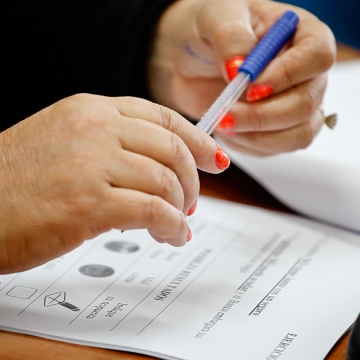A behavioral economics approach for individual decisions in the face of COVID-19: Successes and disappointments
Dans le cadre du premier appel à projet « Flash-COVID-19 » de l’Agence nationale de la recherche, nous avons mobilisé des méthodes récentes de l’économie comportementale afin de mieux comprendre les décisions des individus face à la crise sanitaire due à la pandémie de COVID-19 (coronavirus disease 2019) et d’identifier les paramètres pouvant influencer le respect des mesures sanitaires.


